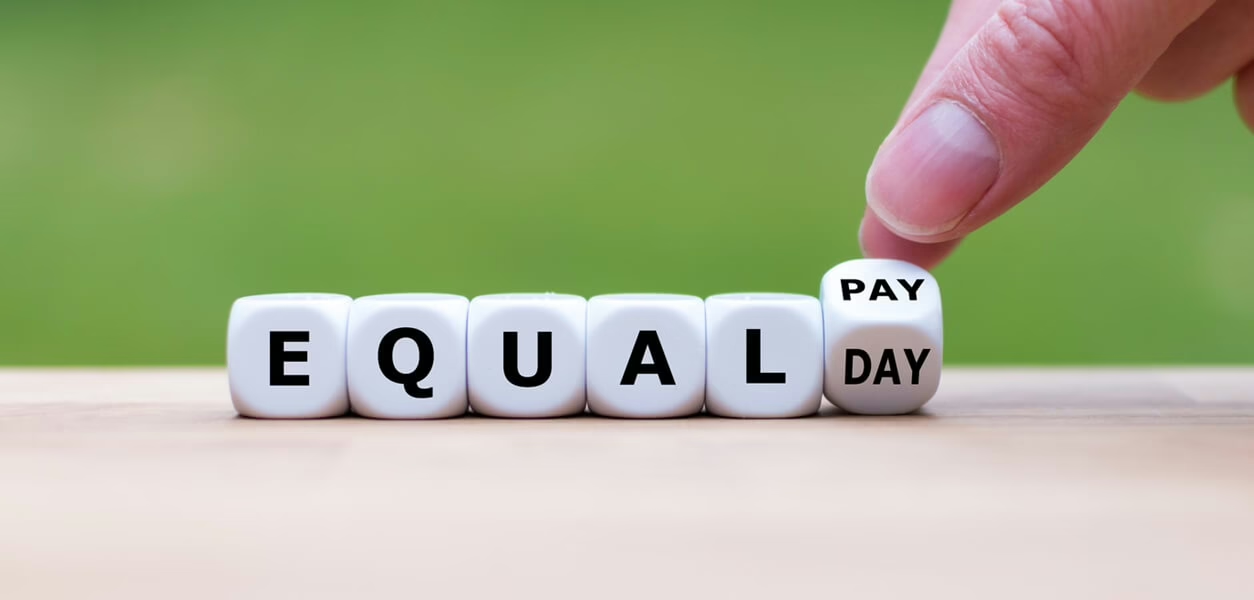
What you don’t know …
… might be hurting your finances
We’re always seeking insights into ways to help our members maximise their retirement savings and income. But what you don’t know might be hurting your finances.
What often comes up in advice appointments is genuine gratitude for providing information that we had thought was more widely known.
This is often not the case. In fact, it’s a constant reminder of the complexity and downright density of our retirement income system. While Australia gets plaudits on the global stage for having a strong savings system in place, getting money out of an accumulation account and using it well when it’s time to draw down remains difficult. This is due to the complicated interaction between superannuation, the Age Pension, private savings, tax, and all the rules that connect all these different ‘moving parts’.
Sadly trying to navigate this retirement income ‘web’ often results in a sense of defeat or even denial. Understanding best next steps becomes overwhelming and it can feel all too hard to pull the pieces apart in order to make smart decisions.
Conversely, the right support to understand the component parts can often lead to an ‘ah ha’ moment – and the realisation that ‘if only’ you’d known that one thing a little earlier, then you might have benefitted financially much sooner.
This week we asked our advice team what they felt were the ‘what I didn’t know I didn’t knows’ when it comes to retirement income. Here’s the five most common things that Retirement Essentials members have shared about what they wish they had learned earlier:
Asking how much and how long?
Not knowing how to think about “how much I can spend in retirement” or “how long my money will last” means it is often put into the too-hard basket, delaying important decision-making.
Investing for the long haul
It’s only in recent years I have fully comprehended the value of investing for the long haul – both in terms of compounding but also ticking the ‘dividend reinvestment’ box so that I never see dividends – instead my retirement nest egg grows ever faster.
What super?
Not understanding the type of super that you do/don’t have. For instance, is it in accumulation or pension phase? Is it a defined benefit? Is it a Self-Managed Super Fund (SMSF)? There are so many terms thrown around and many retirees seem to only know one or two, which can vary from person to person. Definitions of super can confuse, but it’s critical all retirees understand their super and the phase it is in.
At last I can get my hands on it
The consequences of speedy lump sum withdrawals at Preservation Age is also a cause for regret for a few. This can involve moving significant sums from super to a bank account, intending to save it there in readiness for a large purchase i.e. a new car, renovation or holiday. These funds usually earn lower returns, which over the long term, can erode the original capital. The ‘unknown’ element here is that the retiree could have simply withdrawn these funds as and when they wanted to.
Centrelink (usually) needs to know
Meghan shared a note about gifting, which can be applied to many other aspects of Centrelink rules. Just because you are dealing within a threshold does not mean Centrelink doesn’t need to be informed. It does, on most matters to do with fluctuations in your income and assets. Meghan’s client had made multiple gifts to people but assumed that if they stayed under the threshold of $10,000 per annum, then they didn’t need to report them to Centrelink. However, they are obligated to inform Centrelink within 14 days. If these gifts are under the thresholds, there will be no impact on their entitlements, but they must share this detail.
The above ‘wish I’d knowns’ list is, of course, far from comprehensive, but it does highlight the need to try to gather as much information as possible and to seek help if you think there is something further to be added. Today we launch the April Retirement Pulse and urge you to take two or three minutes to respond. We are asking for your ‘unknown unknowns’ as well as whether you believe the family home should become part of the Assets Test for an Age Pension. This has long been a contentious issue (which is why it’s our main topic this week). With the value of homes rising so rapidly, we’ve reached a new stage when it’s entirely possible to own and live in a $5 million-plus residence and still receive an Age Pension. Is this fair? We’d love to hear your views in this month’s Retirement Pulse.






We own our own apartment and between us we own nearly $2m in Super drawing down $11k per month. I have a small corporate consulting business and winding it down but at present it earns about $40k pa. A family Trust that I set up owns two home units worth about $2m net. One is occupied by a daughter rent free and the other a holiday unit used by relatives and friends also rent free. I understand that a pension is out of the question but medical costs and prescriptions are huge,we are 76 and 75. Do we have any chance of getting a discounted medical card from the government ?
Hi Malcolm, thank you for seeking clarity! Based on what you have said the Commonwealth Seniors Health Card would be available to you now that the allowable income threshold has increased so dramatically. To be certain it would be best for you to LOGIN and update the details we have on file to be certain.
If a house is over $3 million, then some consideration must be given so that the person or persons do not receive all of the age pension.
Just because the house is worth $3million does not mean the owner is loaded. They could have been living in that house (bought many yrs ago at a much, much cheaper price) A person cannot go to the grocery store and get a trolley load of grocery and tell the cashier ” it’s ok, I don’t need to pay, my house is worth over $3 million” nor will they get cheaper groceries/bills simply because they don’t receive a full pension !!
I can understand the argument for taking the family home into consideration but the value of that home considering the cost of land and building a home has become enormous, sure you can do it more cheaply in some areas, but in my case at age 77 and have worked for 62 years paying taxes and may never get the pension, I should be able to live in an area of my choice. I have always been a water person all my life it’s what makes me happy and to some extent keeps me alive. See how many millions of $ that will cost you in an area you wish to live in.
As people work hard to own their home it should NOT be included in the asset test, no matter how valuable it is. You can’t eat your home so you do need a pension. The Australian system is very difficult to navigate and older people need it to be more simple.
I agree totally Sue, you certainly can’t eat your home.
My husband and I own our own home through sheer hard work, budgeting, budgeting and more budgeting.
We have paid taxes all our lives and have tried our very best to add to our Super, as unstable as it is and then to reach near retirement age to find out that perhaps the home will be included in the assets test does not sit right with us.
Not fair for those who have worked hard to pay off their mortgage.
Working hard and count every dollar towards repayment of mortgage means that the home you’re living in is not extra fancy and probably cost today less than, let say 3M. Taking in consideration today’s property prices you would receive PBS and pension or part of it. However if you “worked hard” to get 10-20M house its value over that 3M should be included in the mean test when applying for the Age pension. For me it is obvious that there should be a threshold of your home value for the pensioner living on Government pension.
people work very hard to own there home,, always paying taxes and doing the right thing. Your home that you have worked soo hard for should not be included in assets, otherwise why should we all save hard in readiness for retirement if we are penalized for doing a good job
All the comments about “working hard” to own a home suggest that those who rent haven’t worked hard. This is rubbish. As homeowners we have a distinct advantage over those who haven’t achieved this and it’s rarely the case that we did it by working harder than our renting peers. I think that there should be a cap on the value of homes exempt from the assets test. Given the astronomical rise in the value of modest homes in the last few years. $1million would probably be too low but $3million+ is more than the average house. And no one NEEDS waterviews.
we too worked hard, payed all our taxes and more, and down sized, but have assets including super and are hence not able to claim anything. why should a person be allowed to live in a 5 million dollar home and still receive benefits? that’s crap.
Agreed. They have economic resources they can access if necessary…reverse mortgage for example…I am unsure why such a person would need to be putting their hand out???
My question is about gifting. in February 2021 we gifted $40,000 to our son to help with a house deposit. Then in September 2021 we again gifted to our other son $50,000 again to help with a house deposit.
How long does this impact on our pension opportunities. We presently receive a part pension.
Hi Helen, that is very generous of you to help out your children like that. Amounts you gift continue to be assessed as assets for 5 years from the day you make the gift. CLICK HERE to learn more about gifting.
Barbara
Why doesn’t Australia follow the New Zealand system where everybody receives a pension and if their income is high enough they pay tax. Going through centrelink is a nightmare.
Apparently we have businesses having trouble getting staff- in many cases this could be because their pension would be reduced. I am unlikely to receive any pension as I choose to work even though I am close to 80 years old. I know people who plan their life so they can get the full pension and spend many years doing nothing. I believe people should be encouraged to work and pay their fair share of tax
Perhaps a universal pension up to a certain total asset level is the way to go. It would be much, much simpler for everyone. People could choose to focus their assets on the things that matter most to them, rather than on how to meet a govt formula. Eg. I might live in a small home, not update my car, but travel more. Someone else may choose to live in a large home , upgrade their car, but not travel much etc.
At the moment I feel like I will be disadvantaged because I chose to prioritise home ownership and super.as a single person.
Options such as letting people work if they want, and rent out rooms or granny flats without penalties would also be great for those who are retired with assets others could really benefit from. I know plenty of people who would be happy to have a student, etc living in their home, but won’t do it due to losing pensions dollars.
Totally agree.
it would be so much simpler if we had a universal pension system. everyone pays the same amount into a pension fund until retirement age, then everyone gets the same amount of pension at retirement without all the nitpicking complexities we are currently victims of.
Yep a Universal pension is the way to go: Say make it 70% of the average male in come per sersom (single home owner) fully indexed 2 times er yer. If you earn more than this you do not get the A.P. if you earn less than this the AP is set to pay you the difference up to the 70% mark. Simple non of this employing and army of PS to hunt down every dollar.
omg centrelink here i am 75 still working 5 days a week because i want to when i retire and go on the pension if i keep working i have to REPORT TO THE PAROLE OFFICER (centrelink) every fortnight i feel like an inferior citizen like a felon released from prison. nice way to treat our aged citizens who have worked and paid our taxes the system should be based on earnings and pension calculated at tax time you pay or get paid
no assets should be taken into account because some people just happened to be luckier than others and had opportunities which they took at the time and ended up profitable well done and good luck to them
our damned politicians walk out of government with more than 6million in their superannuation fund
so how is that fair???